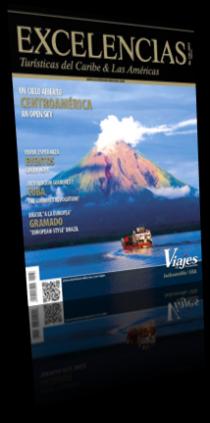- Cuba: The Gourmet Revolution?
The private sector in Cuba tries to make a difference in an effort to get by and grow stronger, and it’s doing it by means of a cuisine that is not afraid of redefining tradition, exploring new tastes and unraveling new textures
Perhaps it sounds hackneyed, but the term “revolution” fits in perfectly when we assess the moment Cuba’s gastronomy is going through. Havana has progressively become a gastronomically interesting city, unquestionably gourmet, where variety is being followed as a rule and even the concept of signature cuisine is on the table.
And there’s no better time for this development, because of the proliferation of restaurants in the competitive private sector, which try to make a difference in an effort to get by and grow stronger, and it’s doing it by means of a cuisine that is not afraid of redefining tradition, exploring new tastes and unraveling new textures.
However, some people still keep it hush when describing Cuban cuisine as “gourmet”, and it’s due to some biased prejudices. Chef Veimar Loyola does believe that the term fits in since Cuban patrons are not only trying to eat their fill, “but also eager to enjoy a spiritual experience and taste dishes with artistic abundance."
The growing gastronomic culture of the Cuban people is being influenced by several aspects, from the boom of bistros, known as “paladares”, to Masterchef-style shows and the creativity encouraged by the peaks and valleys of the market; a challenge that encourages nonstop inventiveness nationwide.
The nomad spirit of the Cuban people is also a positive element, since they have travelled around the world and learned new things that can now be blended with the eclectic Cuban cuisine. Dishes are no longer as basic as they used to be; they now feature higher complexity, ecumenical character, loyal to a nationality marked by the European, African and local heritage. That might be the origin of such fusion proposal.
"Cuba is fusion, since there is a natural blend of cultures that is being enriched with knowledge coming from overseas,” says Michel Calvo, chef of Atelier, a restaurant defined as “a workshop of creation and fine taste”. He goes shopping every morning and prepares a menu characterized by the variety of flavors.
In that daily quest for excellence, restaurants must clear such hurdles as difficult access to fresh and exclusive products, as well as the importation of raw materials and consumables related to haute-cuisine restaurants. Even so, owners sign contracts with farmer in order to obtain supplies or they look for their raw material. That’s the case of the family that manages Santy Pescador in Jaimanitas.
“From the sea to the table... Every morning we go fishing, as a tradition, because that’s how we guarantee that the finest dishes are prepared in our kitchens,” says Leo, heir of the business founded by his father, the late Santiago Alvarez. The best sushi in Havana has been dished out in this restaurant over the years, although the ceviche and fish stew are also unrivalled.
In an archipelago like Cuba, seafood should be in abundance, but the fact is that most of the restaurants are mostly focused on meats, rice and Italian pastas. Anyway, themed places are gaining momentum in Cuba, specialized in such cooking styles as Mediterranean, Slavic, Scandinavian, Asian and experimental.
CIBO Café is a good case in point, right in the heart of Vedado, where Chef Osmany Diaz carries out experiments and proposes mouth-watering alchemies, such as beef tartar with mustard ice-cream. “I love creating and I hate flat cuisine. Patrons come here to be surprised,” he says.
On the other hand, for Asturian-Spanish Pilar Fernandez (Casa Pilar), experimenting is great with your couple, not when it comes to cooking. That’s also the line of Catalonian Jordi Escarra (VIPHavana), who stands up for food prepared in a proper way. “It’s like a pharmaceutical prescription, nobody would dare cook one up,” he outlines.
Ernesto Cardenas jumped from the hotel sector onto private ownership with El Palio restaurant, where he champions the concept of author cuisine. “Creativity is not about working with the dream product, but being nonconformist. In cooking terms, creating goes far beyond taste; it’s about looking for balance and serving a succulent dish, nutritious, with impeccable look and taste,” he points out.
These are favorable times for this “Gourmet Revolution”. The progressive normalization of relations between Cuba and the United States not only promises an avalanche of tourists willing to “unearth” the country’s many ways, especially its tastes, but it’ll open new doors to hold enriching exchanges and give the development of Cuban chefs one leg up.
At least that’s the perception of Enrique Nuñez, owner of Cuba’s most media-hyped “paladar”, La Guarida. According to his authorized opinion, this gastronomic movement will radically change what we presently know as Cuban cuisine. Half a hundred chefs and cooks are already working on it, thus guaranteeing a delicious present and heralding a scrumptious future on the road ahead.





























































































































